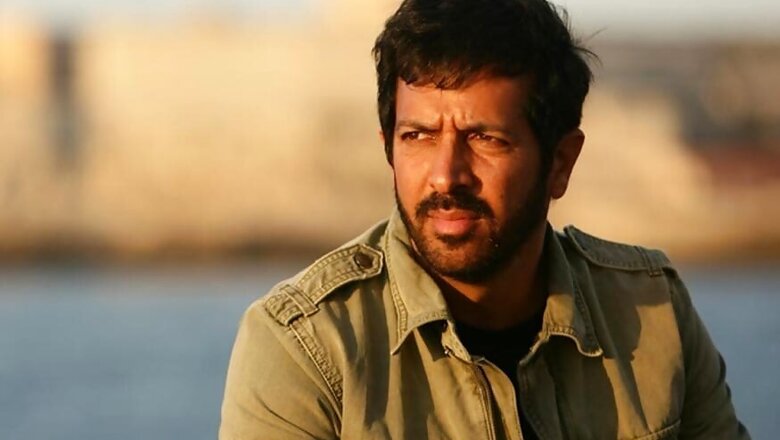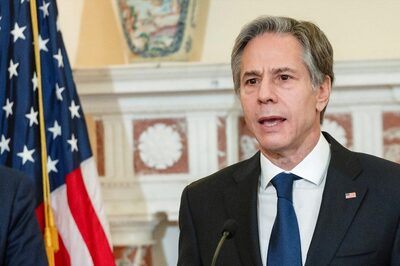
views
Acclaimed filmmaker and an essential part of New Hollywood wave cinema, Martin Scorsese once said, "Cinema is a matter of what's in the frame and what's out." His own films reflected conflicted identities existing in the real world and resulted in forming an off-screen culture of its own. In Hindi film industry, Kabir Khan is one such director who has the right amount of courage and smartness to keep the realism intact in an otherwise, completely fictional stories.
Starting out as documentary filmmaker hailing from Delhi, Kabir always had a keen eye on issues that genuinely affect lives. His dad was one of the founding professors of Jawaharlal Nehru University, so it would be apt to say that the radical punch packed in his every film is a result of his political upbringing. Right from his first feature film, Kabul Express, Kabir dealt with issues, other filmmakers try and ignore.
Loosely based on his own experience in Afghanistan, Kabul Express portrayed the sad state of the country post-Taliban. Commenting upon the terror of Taliban and the politics played by the USA in the name of rescue, Kabir, very subtly highlighted an extremely political scenario. Presented as a human experience story, Kabul Express dealt more with the pain, sufferings and findings, than the politics and war between two polar apart ideologies.
His second film, New York, was again a subtle commentary on the state of Muslims post 9/11. Layering another sensitive issue with a heart-warming story of friendship and love, Kabir proved that political stories don't always have to be ruthless, a human touch can evoke more emotions on the issue, making it relatable to a larger masses and not just the intellectuals and social commentators.
After two semi-successful attempts at making grave issues more humane, Kabir experienced his first big success with Ek Tha Tiger. Starring mass-hero Salman Khan as a RAW agent, the director made a wise move. The rivalry between India and Pakistan was used as film's undertone, but unlike other RAW vs ISI films, this one was a made and promoted as a love story. The socio-political structure of the two neighbouring countries was reduced to a mere backdrop, but the end message of the film was of peace and no hidden war.
The director once again touched upon the condition of India and Pakistan, and this time it was a mute child who narrated the entire story with her expressions with Salman as her companion. Weaving a strenuous relationship between the two countries, with threads of innocence and human touch, Kabir touched the hearts of all with Bajrangi Bhaijaan. It had a child-like perspective, a common man's understanding of a never-ending cold war between the supposedly 'rival' countries. Bajrangi Bhaijaan was a story of a true human love between a man and an innocent girl, not related to him or even to his 'nation'. Breaking the notions of 'boundaries' and the wall of 'superficial nationalism' that we surround ourselves with, Bajrangi Bhaijaan moved above such planes towards a greater religion called humanity. The film's real villain is the notion that the bureaucracies of both the nations have about each other.
So far, Kabir has managed to represent and connect to those millions of people who are above all the complexities of Jinnah's vision and Gandhi's sacrifice. People who like to live in peace without any barbed wires with 440 V current through them. People who believe in the religion of humanity instead of fighting over a piece of land, people who do not want to understand the conspiracies of 'RAW' and 'ISIS' but admire the valleys of Kashmir, kebabs of Karachi, Pakistani fashion and bands, farms of Punjab and sewai in a pure veg 'vaishno' dhabha. The director so far has successfully woven the simple thoughts of normal, non-political people, bounded by some grave situations and has always chosen human story over propaganda.
Now, Kabir is ready to touch upon the horrific Indo-Sino war of 1962, where Indians fell in "Hindi-Chini Bhai Bhai" trap and had to go on an expensive war while being a young free-nation.Tubelight's backdrop is grave, but once again, it's Salman’s innocence and faith that has taken the front seat in the narrative. The film is inspired by a not-so-popular Hollywood film Little Boy, which itself is based on the backdrop of World War II. Choosing a path between JP Dutta's war dramas and Chetan Anand's Haqeeqat, Tubelight looks like another heart-warming story, commenting on the relation between China and India from a humane perspective.
Kabir's film, despite having a political undertone is enriched with heart-warming-scenarios. The story always has a tender soul but also serves as a commentary on what is/or happened outside. The director himself believes in having an opinion but his art always reflects the ideal, humane behaviour. At a time, where left or right have become more than just direction, Kabir has struck a neutral equilibrium, putting humanity ahead of any false notion of nationalism and feeding on a set propaganda of a greater nation. Kabir has cracked the formula of narrating meaningful stories whilst commercial success.
Kabir Khan, a writer and as a director successfully presents hope to people, and make them believe in an ideal world, where innocence, kindness and love can overcome the harsh realities of politics. Maybe he's not a perfect filmmaker with the capacity of commenting on the nuances of political scenarios, but his films have the power to at least look at the cold-wars with a child-like perspective- full of life and softness. The man brings a touch of tenderness to the harsh real-world with his cinema. And that's why he is a visionary the industry will always need.


















Comments
0 comment